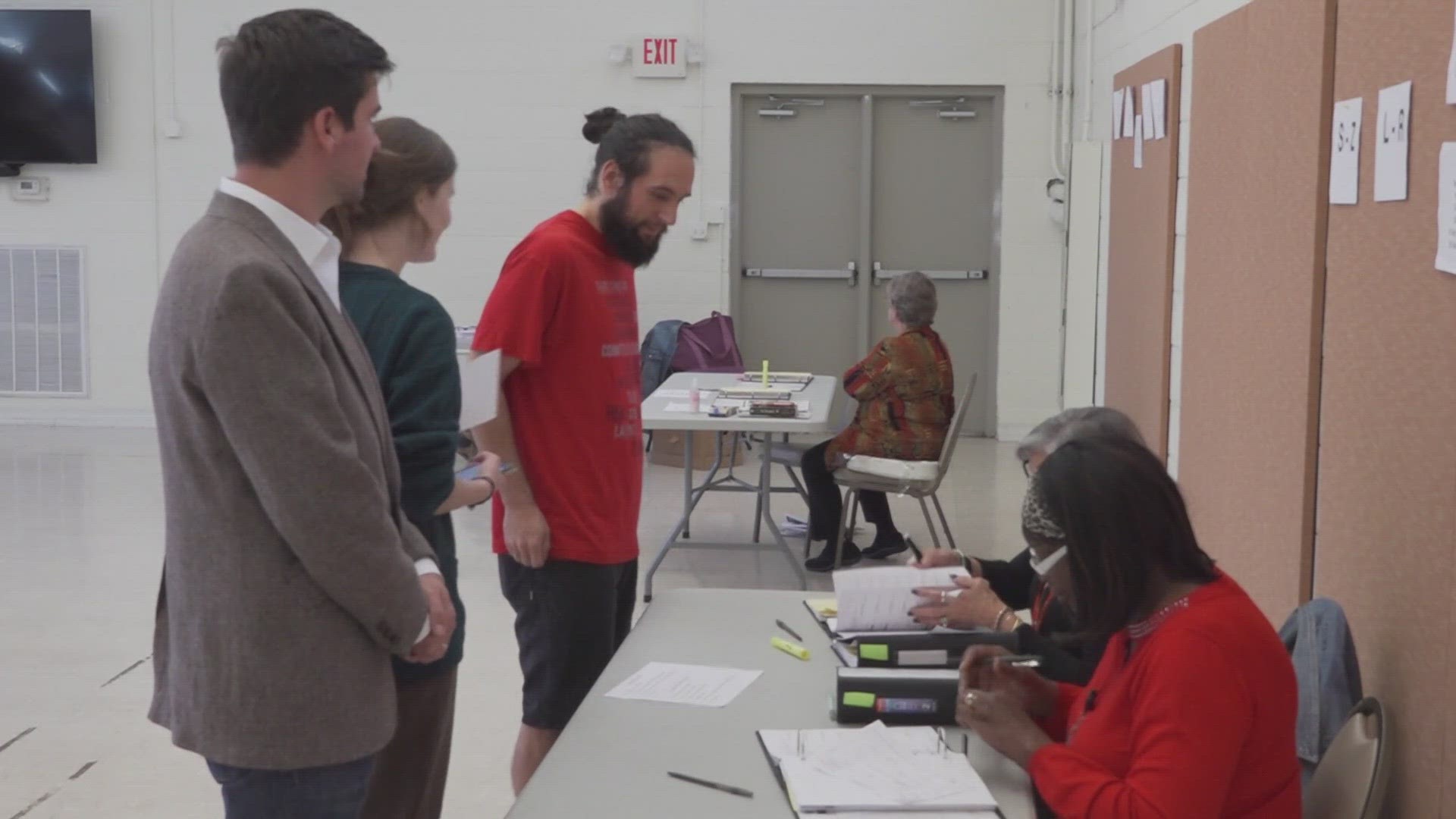NASHVILLE, Tenn. — A Tennessee lawsuit was dismissed on Monday that challenged state laws requiring signs to be posted at polling places telling voters they needed to be "bona fide" party members.
The lawsuit challenged two laws. One has not been enforced and required voters to declare party affiliation or show "bona fides" to vote in a primary election.
Voters are not required to register with a party to vote in a primary election in Tennessee. Instead, they just need to ask for either a Republican or Democrat ballot at their polling location. The judge's opinion said there have been no "known prosecutions under (the law) in the roughly 50 years since it became law."
The other law requires signs to be posted at polling places that say it's a violation of state law for a person to vote "in a political party's primary without being a bona fide member of or affiliated with that political party, or to declare allegiance to that party without the intent to affiliate with that party."
Two Knoxvillians filed the lawsuit — Victor Ashe, a longtime Republican and the former mayor of Knoxville, and Phil Lawson, a longtime Democrat and businessman. They joined the League of Women Voters of Tennessee to file it. They hoped for the laws to be declared unconstitutional and for a judge to say the laws violated their First Amendment rights.
The Nashville judge ruled in favor of the Tennessee Secretary of State, Tre Hargett.
In the lawsuit, the League argued that the laws prevented it from educating voters because it could not accurately tell people about voting issues related to the primaries while the laws were in effect. In the judge's opinion, he said the League's mission isn't to offer legal advice, but instead, its mission is "providing voter information" to "empower voters and defend democracy."
"The enforcement of (the law) does not 'perceptibly impair' this mission," the opinion said. "For example, the League can still encourage voters to register to vote in both primary and general elections. The League can also educate voters about the various issues that might impact them or their community by, for example, urging potential voters to elect representatives that will address what Plaintiffs perceive to be a vague law."
The judge's opinion also said the League did not adequately explain "why a law that has been on the books for over 50 years is likely to suddenly confuse or intimidate voters." The League pointed to a speech by Hargett as an example of a "threat of prosecution." In it, he said the District Attorney could prosecute people if they vote in a party's primary election without being a member of that party.
The judge said in the speech, the Secretary of State was describing an "undeniably true statement" about the state's law instead of threatening to prosecute voters if they aren't members of a political party and participate in a primary election.
The judge's opinion also found that Ashe and Lawson could not show they had been really hurt by the laws or enforcement of the laws, and neither could the League of Women Voters.
"The League 'cannot manufacture standing merely by inflicting harm on themselves based on their fears of a hypothetical future harm that is not certainly impending,'" the opinion said.
Plaintiffs can revive the lawsuit in the future.

